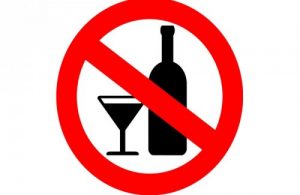90 Years Sober, One Day at a Time
Tuesday, June 10th, 2025Addiction and Recovery
By Bob Gaydos
On June 10, 1935, Bob Smith, a doctor in Akron, Ohio, had a beer to steady his hand for surgery he was about to perform. It was the last drink of alcohol Smith, who had tried and failed to stop drinking many times, ever had. It became the founding date of a movement that in 90 years has grown to some 2 million members around the world: Alcoholics Anonymous.
Smith was the famous Dr. Bob, the first person Bill Wilson “talked” into sobriety by repeatedly telling the doctor how he, himself a hopeless drunk, had managed to stay sober. Wilson had failed with other potential converts, but realized at some point that, while the others were still drinking, he was managing to stay sober by telling other alcoholics his story. Smith eventually followed the same path and the story-telling has continued ever since.
Eventually, the two men put their stories and other stories of recovery into a book, along with the steps they took to get and stay sober.
It is one of the best-selling and most influential books of all time, with more than 30 million copies having been sold and millions of lives changed by what is contained on its pages. Yet it is not exaggeration to suggest that many of its readers don’t know the actual name of the book.
It is known, proudly and even reverentially, by most who have read it as the Big Book. Officially, the book’s title is “Alcoholics Anonymous,’’ the same as the 12-Step program for treating alcoholism (and other addictions) described within its covers. A dozen years ago, the Library of Congress included it on a list of “Books That Shaped America.”
There are 88 books on the list, ranging from Thomas Paine’s “Common Sense,” to Edgar Rice Burroughs’ “Tarzan the Ape Man,” with the common factor among all being that “they shaped Americans’ views of their world and the world’s views of America.”
While it may not be for everyone, the Big Book has certainly shaped people’s views and lives. Since it was first published in 1939, it has been the textbook, if you will, of how to get and stay sober for millions around the world. AA has spawned numerous other 12-step programs to deal with addictive behavior. And, while basing its recovery program on established spiritual, psychological and medical precepts, Alcoholics Anonymous has also widened the dialogue within all three areas and influenced the way practitioners in those fields deal with addiction.
One could say the Big Book is a classic example of what it preaches. Much of the recovery program contained is taken from the Oxford Group, a Christian fellowship that emphasized self-examination, making amends and working with others. (Wilson and Smith both were members of the Oxford Group for significant periods.) But the Oxford Group’s heavy religious emphasis did not sit well with many of the other drunks who were early member of AA. As a result, most references to “God” were eliminated or changed to a “Higher Power of your understanding.”
Editing also changed the preachy “you” to the inclusive “we” in describing how alcoholics got sober. Thus, this is what we are and this what we did. If you follow these suggestions, “Rarely have we seen a person fail who has thoroughly followed our path.”
What do current members of AA think about the Big Book? A sampling of recent comments:
- “When I first read it, I had to say, ‘(Expletive!) I’m an alcoholic. How did they know?’”
- “I used to walk around with the Big Book (in early sobriety) like a protective shield.”
- “It helped me understand I have an allergy.”
- “In many ways it’s like the bible for alcoholics. It provides direction and order.”
- “Think about the impact. One person reads it and passes it on to others for more than 30 million.”
- “When they get (the Big Book) people are usually in such pain, they will read it.”
- “It gave me a guide for living, far beyond just not drinking.”
- “Simple rules for broken people.”
When it came time to publish the book, Wilson and the others chose The Cornwall Press, a now-defunct printing operation in Cornwall, N.Y. Because they were going to charge $3.50 for the relatively short book, they wanted it to look impressive, so they used thick paper and the widest possible margins. Hence, the “Big Book” nickname. Subsequent printings were smaller in size, but the name stuck.
The first press run was for 4,800 copies, with the promise from the printers that more would be printed when the first copies were sold. But even those original copies were in limbo as the printer refused to release any books until they were paid for. Although printed in the winter of 1939, only a few copies were paid for at the time. The significant release came in early 1940 — 85 years ago. Today, with inflation, “Alcoholics Anonymous” sells for around $12, but many AA groups simply give copies to new members, continuing to spread its message from one drunk to another.
rjgaydos@gmail.com



